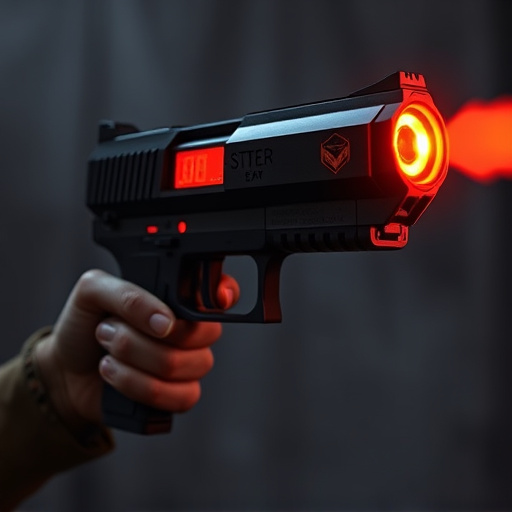The legality and regulations surrounding master blaster stun guns (Tasers) vary significantly across US states, with some allowing unrestricted ownership and others having stringent restrictions. Before purchasing or carrying a Taser, it's essential to research local laws, as requirements include permits, training, background checks, and demonstrating a legitimate need. Compliance is crucial to avoid legal issues. Ethical usage emphasizes self-defense as a last resort while prioritizing the safety of others.
“Unraveling the complex web of civilian Taser ownership, this article explores state-by-state regulations regarding the purchase and possession of a powerful tool—the Master Blaster Stun Gun. From understanding the legal framework to delving into ethical responsibilities, we navigate the landscape for prospective owners. With varying requirements and safety guidelines, each state offers its unique perspective on civilian stun gun ownership. By examining these laws, individuals can ensure they remain compliant while making informed decisions about carrying a Master Blaster Stun Gun.”
- Understanding civilian Taser ownership: The legal landscape
- State-by-state requirements for purchasing and possessing a Master Blaster Stun Gun
- Ethical considerations and safety guidelines for civilian stun gun owners
Understanding civilian Taser ownership: The legal landscape
In many jurisdictions, the ownership and use of a master blaster stun gun (commonly known as a Taser) are regulated by stringent state laws. Understanding these legal requirements is essential for civilians considering Taser ownership. The legal landscape surrounding civilian Taser ownership varies significantly from state to state, with some allowing unrestricted possession while others impose strict limitations.
Several states have enacted comprehensive legislation that outlines who can own a Taser, under what circumstances it can be used, and where it can be carried. These laws often require individuals to obtain permits or licenses, pass safety training courses, and demonstrate a legitimate need for the device before acquiring a stun gun. The variability in state regulations underscores the importance of researching specific local laws before purchasing and carrying any type of less-lethal self-defense weapon, including Tasers.
State-by-state requirements for purchasing and possessing a Master Blaster Stun Gun
In the United States, the regulations surrounding civilian ownership of a Master Blaster Stun Gun vary significantly from state to state. Some states allow open carry with minimal restrictions, while others require permits or specific circumstances for possession. For instance, Texas and Arizona permit residents to own stun guns without a license, making the process relatively straightforward. In contrast, California has stringent regulations, demanding a permit for any type of firearm or stun device, along with specific use cases approved by local law enforcement.
When considering the purchase of a Master Blaster Stun Gun, it’s crucial to understand your state’s laws. States like Florida and New York have moderate requirements, allowing open carry with certain limitations, while requiring background checks and training for purchase. Some states, such as Illinois, have strict restrictions on stun guns, often categorizing them as weapons and subjecting ownership to extensive regulations. Therefore, prospective owners must research their state’s specific laws before making a decision, ensuring compliance to avoid legal issues.
Ethical considerations and safety guidelines for civilian stun gun owners
Civilian stun gun ownership, while providing individuals with a tool for personal protection, also comes with significant ethical and safety responsibilities. Those considering acquiring a master blaster stun gun should be well-informed about their state’s regulations and understand the potential implications of their decision.
Safety guidelines for civilian stun gun owners include proper training in the device’s operation to ensure accurate usage. Responsible ownership entails keeping the device secured, out of reach of unauthorized individuals, especially children. Additionally, owners must familiarize themselves with local laws regarding public spaces where stun guns are permitted and understand the potential legal consequences of misuse or inappropriate deployment. Ethical considerations prompt owners to use such devices only as a last resort for self-defense, respecting others’ safety and well-being above personal convenience.
The path to owning a Master Blaster Stun Gun involves navigating a complex web of state laws, each with its own unique requirements. Understanding these regulations is essential for prospective civilian stun gun owners to ensure compliance and promote safety. By adhering to ethical considerations and following the outlined safety guidelines, individuals can responsibly exercise their right to carry a Master Blaster Stun Gun while contributing to community security.
